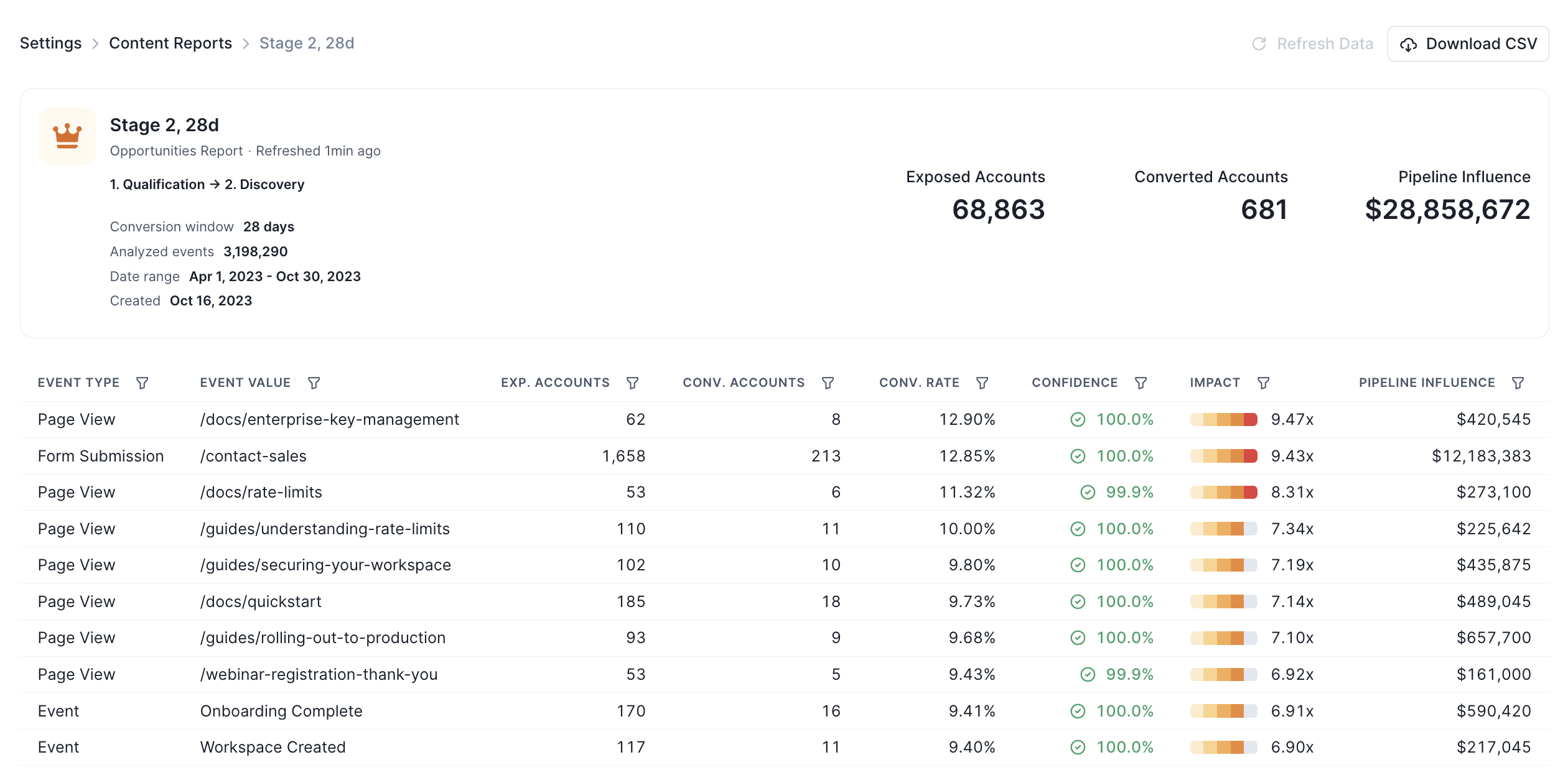Skip to main contentWhat is a Content Report?
Content Reports help you analyze which page views, custom events, and form submissions lead to the conversion events you care about. A deep-dive of the purpose of Content Reports and how you might use them lives on the Koala blog: A deep-dive into Koala Content Reports.
Note that typically Content Reports start to get a lot more interesting once Koala has observed over 100 conversions (whatever your definition of “conversion” is), so this is a feature that get smore interesting the longer Koala has been installed.
What does a Content Report look like?

Conversion Events
You can select any conversion event that you care about. Here are the most common conversion events we see customers using:
- An opportunity becomes “sales qualified” (typically a transition from Stage 1 -> Stage 2, but it depends on your CRM setup)
- A demo request comes inbound
- A trial is started for a paid plan
Conversion Window
Conversion windows can be set to 7 days, 14 days, 28 days, or 90 days. If you’re trying to determine which content shows someone is “sales-ready”, we recommend starting with a shorter conversion window of 14 days. If you’re trying to understand the performance of more top of funnel / awarness content (eg., a blog post), it may make sense to consider a longer conversion window of 90 days, since you wouldn’t expect for that top of funnel content to immediately convert to a sales opportunity.
Sorting & Filtering
You can sort by any column - for instance, if you wanted to see which pieces of content drove the most pipeline dollars, or which pieces of content drove the most opportunities.
You can also use advanced filtering - below are a few common uses of filtering:
- Only include content with a statistically significant conversion rate (ensures that you don’t over-index on low-exposure content)
- Use event type filtering to compare similar actions against each other (eg., only marketing form-fills or only custom events that happen in the product)
- Use event value filtering to compare similar types of content against each other (eg., all technical docs, all blog posts, all case studies, etc.)


